About Us

KUNGLIGA TEKNISKA HOEGSKOLAN
STOCKHOLM, Sweden
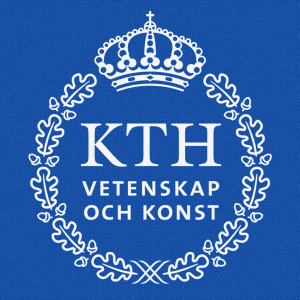
KTH Royal Institute of Technology in Stockholm is the largest and oldest technical university in Sweden. No less than one-third of Sweden’s technical research and engineering education capacity at university level is provided by KTH. It’s education and research today spans from natural sciences to all branches of engineering and includes Architecture, Industrial Management and Urban Planning. Several national research centres are hosted by KTH. Five strategic multidisciplinary research platforms have been formed to further enhance KTH’s attractiveness as a major strategic research partner. Further, KTH is also a major partner in five European Knowledge and Innovation Communities formed by the prestigious EU organization EIT (European lnstitute of Innovation and Technology). KTH embraces academia and the public and private sectors working together. We are part of extensive international research collaborations and participate in a large number of educational exchange or joint programmes with universities and colleges in Europe, the U.S., Australia, Asia and Africa. Sweden is considered to be one of the most technologically innovative countries in the world and Stockholm is consistently ranked as one of world’s most entrepreneurial, innovative and attractive cities. KTH maintains close relationships with an expanding network of international companies and the industrial community in a number of fields and working and studying here provides access to this network. The four KTH campuses in Greater Stockholm, gather more than 13,600 full-time students, some 1,700 PhD students and close to 5 000 employees. The campuses are strategically located close to their areas of research and study, for example KTH Kista is situated in the middle of the Kista ICT hub, with some of the world’s leading Information and Communications Technology companies. One of our other campuses, KTH Flemingsberg, is located in one of Northern Europe’s leading medical technology centres for research and industrial activity. About 3,400 new students enter the first year of university studies each year, and about 2,500 master students. Almost 4,900 people are employed by the university out of which 303 as professors and 150 as associate professors. More than 280 four year PhD-degrees are issued each year and 100 licentiate degrees (two years of research).
Activities and experience of the organisation

Antonio Maffei
Antonio Maffei is an Associate Professor at the department of Production Engineering in KTH – The Royal Institute of Technology since 2019. His research interest includes Business Models for advanced automation technology, assembly technology and engineering education. He is a docent in Production Systems and Head of the research group called Digital Smart Production. Email: maffe@kth.se

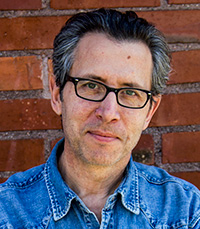
Mauro Onori
Full professor Head of the IIP dept. He has extensive pedagogical experience and will be supporting the initiative trough a senior role aimed at ensuring the quality of the promised output.
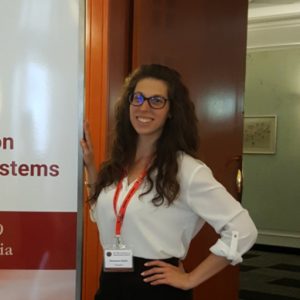
Eleonora Boffa
Eleonora Boffa is a doctoral student at the Department of Production Engineering at KTH – The Royal Institute of Technology since 2018. Her research interest is Business Models within the manufacturing domain. Eleonora holds a B.Sc. and a M.Sc. in Management Engineering from Politecnico of Turin, Italy.
Email: boffa@kth.se
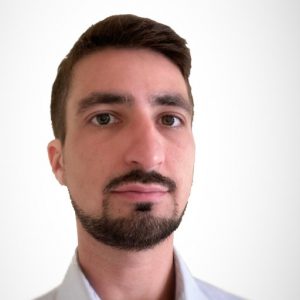
Fabio Marco Monetti
Fabio Marco Monetti is a doctoral student at the Department of Production Engineering at KTH Royal Institute of Technology. His research focuses on product design cost-effective solutions for ease of assembly. Fabio holds a M.Sc. in Mechanical Engineering from Polytechnic University of Milan, Italy.
Email: monetti@kth.se
POLITECNICO DI TORINO
POLITO is a public University with 32,000 students in the fields of Engineering, Architecture and Management. At the graduate level, POLITO offers 32 MSc and 12 PhD courses many of which in English. POLITO has been able to reconcile tradition and innovation by being deeply rooted locally and at the same time by establishing itself as an attractive University for students and talents coming to study and work from all over the world. Thanks to the quality of its research and to the tradition of liaising with companies, POLITO ensures students a swift work placement and attracts significant investments and collaborations with blue chip companies. Inside the Politecnico di Torino there is a highly professional training (Alta Scuola Politecnica – ASP) opened to the most deserving students and oriented to training on soft skills to support the development of innovative products / projects. POLITO has 400 Cooperation Agreements with other Universities, being part of CESAER, CLUSTER, E.C.I.U, EUA, CMU. . The Politecnico is involved in 91 EU projects, 108 National projects and 258 research contracts. Politecnico di Torino has a long experience in participating or coordinating European Projects. POLITO, toghether with other partners from Europe and from South Mediterranean Countries is working to widening participation and adoption of Open Educational Resources (OER) and Open Educational Practices (OEP) as a bottom-up approach to support the modernisation of the Higher Education sector in Morocco, Palestine, Egypt and Jordan. OpenMed is an international cooperation project cofunded by the Erasmus+ Capacity Building in Higher Education programme of the European Union during the period 15 October 2015 – 14 October 2018. POLITO offers a master’s degree course in mechatronic engineering and professional master courses on Robotics and Industry 4.0: Automation and Industry 4.0 for COMAU Robotics, sMart – state of the art Manufacturing for Michelin, Hierarchical Open Manufacturing for Industry 4.0 (HOMI4.0) for FIDIA and SMEs, Manufacturing 4.0 for COMAU Robotics, AVIO, PRIMA, SKF. In 2020, teaching at Politecnico had to be renewed to face the unexpected and sudden emergency due to the Covid-19 pandemic that we are still facing. From the first days of the health crisis until July 2020, all the teaching activities – including exams and graduations – were carried out exclusively online. PoliTO’s response to the emergency was unprecedented: the reinforcement of IT infrastructure, plus the identification of technological solutions and new teaching methods permitted the almost regular functioning of teaching and assessment activities during the emergency period. Even for the Academic Year 2020/2021, PoliTO has decided to commit itself to guaranteeing, during both semesters, the online provision of the entire first and second-level teaching offer, with the possibility of providing additional face-to-face teaching through methods based on the evolution of the epidemic. From a rapid response to an emergency phase, the online teaching turned into a unique occasion to test innovative teaching methods and to introduce teaching and evaluation approaches that may become part of PoliTO students’ daily life in the near future, when the emergency phase will be over.
Activities and experience of the organisation
The team of POLITO involved in this project collects different transversal competences within technical and management. In particular for the project: a) Methods and tools for Industry 4.0 b) Methods of interaction with virtual models to support learning and training. c) Techniques of Collaborative Robotics. d) Methods for Performance Measurement Systems. POLITO has a dedicated website: coronavirus.polito.it, providing documentation and guidelines for online teaching and learning. For its nature, blended learning will be open to contributions from teachers and students from other Universities and Research Institutes that can continuously add new learning material. The workshops are based on a “web-intensive” learning model and are characterized by specific features including: lessons divided into teaching units, each introduced by a video presentation from the teacher, widespread use of textual content within the lessons, clustering of cross-disciplinary courses, references and resources to further study material on the Web (selective web-linking), interoperability and synergies with well-known online publishers.
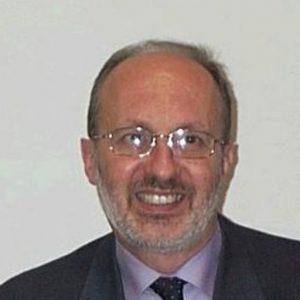
Fiorenzo Franceschini
Full Professor, since 2000, and teaches Quality Engineering in the Department of Management and Production Engineering at Politecnico di Torino. He is a Senior Member of ASQ (American Society for Quality), Full Member of INFORMS (The Institute for Operations Research and Management Sciences). He is a member of the Editorial Board of Quality Engineering, International Journal of Quality & Reliability Management, and Proceedings of the Institution of Mechanical Engineers - Part B - Journal of Engineering Manufacture. He is a member of the European Experts Database as evaluator of the Research Technological Development (RTD) proposals in Industrial and Materials Technologies for the European Community. He was Head of the Department of Management and Production Engineering from 2007 to 2015.

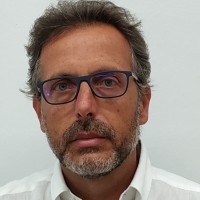
Dario Antonelli
Associate Professor of Manufacturing in the Department of Management and Production Engineering of Politecnico di Torino since 2001. His research activity is mainly focused on process simulation and collaborative robotics. He has 30 years of experience in teaching in master courses of manufacturing and production systems and process simulation. He is POLITO’s contact person in the Erasmus+ project Tiphys. He directs the professional master in Hierarchical open manufacturing for Industry 4.0, HOMI4.0. He teaches the PhD course on Smart Manufacturing.
UNIVERZA V LJUBLJANI
LJUBLJANA, Slovenia
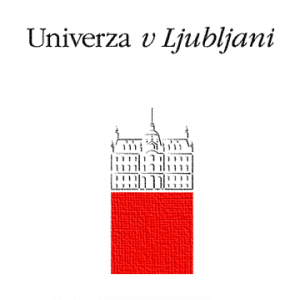
Activities and experience of the organisation
Faculty of Mechanical Engineering is one of the larger members of the University of Ljubljana. As you can see below, it is heavily involved in European projects (more than 18 in last 3 years). The faculty consists of 36 laboratories of which the Laboratory for Process Automation (LPA) is the most relevant for the project. LPA is part of the Department of Cybernetics, Mechatronic and Production Engineering which is responsible for the “Mechatronics” module in the study program.
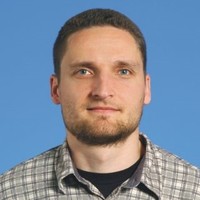
Primož Podržaj
Primož Podržaj is a professor at the Faculty of Mechanical Engineering, University of Ljubljana. He is the head of the Laboratory for Mechatronics, Production Systems, and Automation (LAMPA). His research interests include control, theory, artificial intelligence, machine vision and robotics.
e-mail address: primoz.podrzaj@fs.uni-lj.si

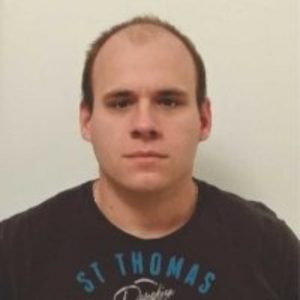
Dr. Samo Simončič
Assistant Professor and a member of LPA heavily involved in teaching. He is an assistant for all the courses lectured by Primož Podržaj and communicates with students a lot during lab exercises. As a researcher he has published several scientific papers in renowned SCI journals. He also took part in Eureka project (RWC). He is a keen programmer.
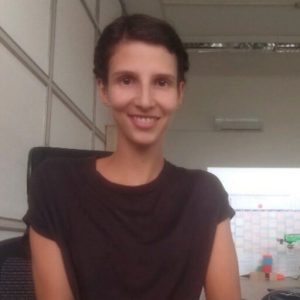
Tena Žužek
Tena Žužek is a researcher in the Laboratory for Mechatronics, Production Systems, and Automation at Faculty of Mechanical Engineering, University of Ljubljana. In 2022, she received a PhD in mechanical engineering from University of Ljubljana. Her research interests include robotics, multi-agent systems, and fleet management.
e-mail address: tena.zuzek@fs.uni-lj.si
Andreja Malus
Andreja Malus is a teching assistant and PhD student in the Laboratory for Mechatronics, Production Systems, and Automation at Faculty of Mechanical Engineering, University of Ljubljana. Her research interests include robotics, multi-agent systems, and reinforcement learning.
e-mail address: andreja.malus@fs.uni-lj.si
UNIVERSITA TA MALTA

Activities and experience of the organisation
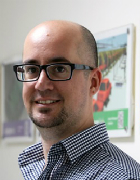
Dr Ing Emmanuel Francalanza
A Senior Lecturer and experienced researcher within the DIME. In the past years, Dr Francalanza has worked on several funded projects (including MCST R&I, ERDF and various KA2 Erasmus+ projects). His doctoral research involved investigating complex issues relating to supporting factory planners during the design of factories and their underlying manufacturing systems. Dr Ing. Francalanza currently carries out research in the field of digital manufacturing. His research work yielded over 25 scientific publications in international journals, books and conference proceedings, mainly in the field of digital production systems.

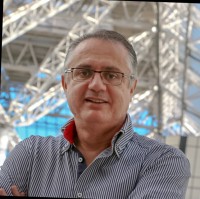
Prof Ing Jonathan Borg
Full professor within the DIME. Prof Borg has, over the years, gained direct experience in a number of EU Projects ranging from EUMEDIS, FP6, FP7, Asia Link, Leonardo da Vinci, Grundtvig and H2020. Prof. Borg has over 100 peer-reviewed scientific publications in the field of industrial product design & development. He is annually invited to evaluate and review project proposals submitted under a range of H2020 Calls. He has sat on a number of public boards, including the Malta Council for Science & Technology. Of relevance to this project is that Prof. Borg contributes his expertise to the University of Malta by lecturing on Digital Manufacturing, including CIM, CNC, and Industry 4.0.
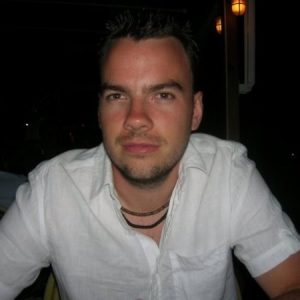
Dr Ing Paul Zammit
A Lecturer within the DIME. His research interests include; Collaborative product development, Manufacturing Information and knowledge management, Product lifecycle management (PLM), and Enterprise Engineering, publishing numerous peer-reviewed articles within these fields. His PhD research involved the development of a knowledge capturing and sharing framework using advanced ICT technologies to enable problem-solving in a social context and ensure the use of the collective company knowledge. Before joining UM, Dr Zammit worked within Industry for over 15 years in various engineering and management positions.
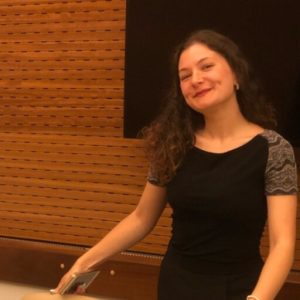
Amberlynn Bonello
Graduated in Mechanical Engineering (Industrial and Manufacturing) with First Class Honours from the University of Malta. Her interests include Industry 4.0, machine learning, collaboration between man and machine, automation and sustainability.
UNIVERSITA' DEGLI STUDI DI BERGAMO
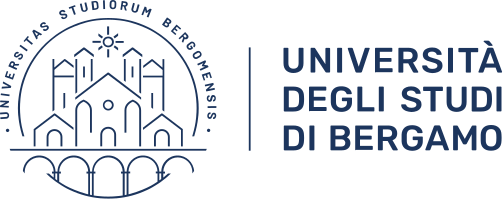
The University of Bergamo (UNIBG) is one of the youngest universities in Italy and, due to its geographical location, has a strong connection with the companies of the territory. More than 100 professors, researchers and PhD candidates work in the Department of Management, Information and Production Engineering at the Engineering Campus, where the CELS research group is located. CELS provides bachelor, master’s and life-long education activities, research, and technology transfer projects in the fields of Supply Chain Management, Service Chain Management, and Industrial Asset Management. Following the impact of the COVID-19 pandemic, UNIBG has initially moved all the educational activities online trying to exploit traditional platforms and collaboration tools (e.g., Mentimeter) to connect with students and provide interactive experiences. Since September 2020, UNIBG has invested a lot in infrastructure, experimenting with the blended learning to allow students to fully exploit online teaching without losing the interaction and the possibility of doing laboratory work. UNIBG and CELS are also working to improve the adoption of blended mode to accommodate large classes of students, orientation activities and long-life learning.
Activities and experience of the organisation

Prof. Giuditta Pezzotta
Giuditta Pezzotta is Associate Professor at the University of Bergamo and a research fellow of CELS research group of the Department of Management, Information and Production Engineering. She received her PhD degree in Management, Economics and Industrial Engineering from Politecnico di Milano in 2010. Through her work at CELS, since 2006 she has been involved and has coordinated several industrial and National and European research projects related to the Product-Service Systems Engineering fields. Her current research interests are Service Engineering, Service Operations and Product-Service System. She is author of more than 40 refereed international and national journals and conference papers. She teaches in Production Management, Operations Management and Service and Supply Chain Management courses at bachelor and master’s levels. Since 2020 she is experimenting with blended learning in her courses.

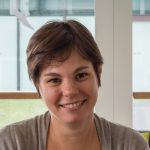
Prof. Fabiana Pirola
Fabiana Pirola is an Assistant Professor at the Department of Management, Information and Production Engineering of the University of Bergamo (Italy), where she is also research fellow of the CELS research group. She received her PhD in Logistics and Supply Chain Management at the University of Bergamo in 2011. Her research interests are product-service systems, service engineering, mainly focused on data-driven services, and smart manufacturing, mainly focused on modeling and simulation. In these areas she has been involved in several industrial and research projects, funded at Regional, National and European level. She is author of more than 40 refereed international and national journals and conference papers. She teaches in Production Management, Operations Management and Healthcare Operations courses at bachelor and master’s levels. Since 2020 she is experimenting with blended learning in her courses.
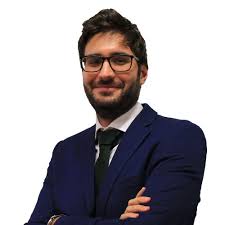
Dr. Roberto Sala
Roberto Sala is a Post-Doc at the Department of Management, Information and Production Engineering of the University of Bergamo (Italy) where he is also research fellow of the CELS Research Group. He received his PhD in Technology, Innovation, and Management at the University of Bergamo in 2020 with a thesis on data-driven decision-making processes to improve the maintenance service delivery. His research interests gravitate around data-driven decision-making, maintenance, Industry 4.0, and product-service systems. He has participated into multiple projects at Regional, National and European level in these research areas. He teaches in Production Management, Operations Management and Healthcare Operations courses at bachelor and master’s levels. Since 2020 he is experimenting with blended learning in his courses.
SVEUČILIŠTE U RIJECI
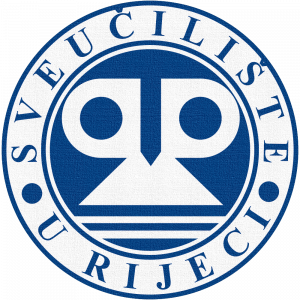
The University of Rijeka (UNIRI) is the fundamental educational and research institution in the western part of Croatia. Founded in 1973, the University of Rijeka has matured into a modern European university and center of excellence whose impact extends beyond the region. With a total of 12 faculties and 4 departments, 12 specialized research centres, with over 161 study programmes it is a research, science, and education-oriented university that supports social and economic development in its community, the City of Rijeka, and the wider region. The University of Rijeka has over 16600 students, over 1700 employees, and almost 1000 researchers. By building a state-of-the-art campus, the University of Rijeka has visibly improved its teaching methods and scientific structure, while attending to each student’s and staff member’s living and working needs. UNIRI is the first university in Croatia to have signed “The European Charter for Researchers” and “The Code of Conduct for the Recruitment of Researchers”, thereby accepting the European Commission’s initiative aiming to increase employability and promote research careers as vital elements in the strategy of economic growth, employment, and setting up the European Research Area. Also, the University of Rijeka was the first to sign the European Commission’s Charter for participation in the “Group for Human Resources Strategy Implementation”. By signing the above-mentioned charters, UNIRI has pledged to implement these documents at the University of Rijeka, which is one of the strategic goals set in the UNIRI strategies. The University of Rijeka was the first Croatian University to set a development strategy. It focuses on excellence, quality assurance, life-long learning, active collaboration with the local community & economy, and active inclusion into the EHEA & ERA. Since 2019, UNIRI is a member of the E+ European Universities Initiative: Young Universities for the Future of Europe (YUFE) and from 2021 the member of the Young European Research Universities Network (YERUN). UNIRI is the first Croatian University to have developed a Gender Equality Plan. The University of Rijeka has extensive experience in managing EU projects through its Centre for EU projects, with many successfully implemented international and EU projects in a diversity of EU R&D programmes and funds (ESF, ERDF, Erasmus+, Horizon 2020). The majority of UNIRI projects fit into funding schemes related to higher education and research but also several large infrastructural projects from the European Regional Development Fund (ERDF) worth around 50 million EUR have been successfully implemented over the past years. Currently, the University of Rijeka participates in numerous research, infrastructure, and cooperation projects, mainly Horizon 2020, Erasmus+, European Regional, and Development Fund, and European Social Fund projects.
Faculty of Engineering (RITEH), during the six decades of its activity, has positioned itself as a recognizable institution on the Croatian and international scientific and higher educational scene. Today, the Faculty is organized through 11 departments, 36 chairs and 50 laboratories. More than 1,800 students are currently studying at RITEH. Teaching is conducted in study programmes that involve undergraduate and graduate university studies in mechanical engineering, naval architecture, electrical engineering and computer engineering, as well as postgraduate doctoral studies in engineering sciences. The research activity of the Faculty has been carried out within numerous scientific projects funded by the Croatian Science Foundation, UNIRI, bilateral projects with scientific institutions from the international environment and a number of international scientific funding sources that support scientific excellence (Horizon 2020, OPKK, COST, ERASMUS, CEEPUS). As part of international cooperation, RITEH has been cooperating with approximately 100 institutions around the world.
Activities and experience of the organisation
Researchers at the Faculty of Engineering are currently involved in 12 European projects (Horizon 2020, COST actions, Erasmus+ projects and Operational programme Competitiveness and cohesion), and they run a number of research projects granted by national competitive grant program and more than 30 research projects granted by the university competitive grant program. All members of the UNIRI-RITEH team involved in this project come from the Department of Computer Engineering. This department comprises the fields of computer- and communications- engineering, which follows the current trend in the world, of mutual convergence and interleaving of these two crucial technologies of the today. The field of computer engineering at our department currently includes development of artificial intelligence and algorithms for human-machine interaction, algorithms for e-learning and m-learning, and the work on digital processing of speech and image. We also carry out research in software engineering applied to the medical field as well as development of methods to test new software. All members also take active part in the Center for Artificial Intelligence and Cybersecurity (AIRI) at the University of Rijeka.


Asoc. Prof. Sandi Ljubić
Assistant professor for computer engineering studies and head of Section of Software Engineering at UNIRI-RITEH. He has extensive experience in organizing and conducting HCI experiments in which it is necessary to analyse and adequately quantify both the performance of the interactive systems and the user experience. In part of his scientific research, he also worked with e-learning and m-learning systems and solutions. He is currently the local coordinator for the ERASMUS+ project (Interactive course for Control Theory), which includes the cooperation of universities from 4 EU countries. He additionally contributes as a researcher in another ERASMUS+ project that brings together 7 participating EU countries. Starting from 2020, he leads the Laboratory for HCI at the Center for Artificial Intelligence and Cybersecurity, University of Rijeka.
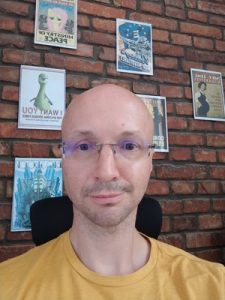
Prof. Ivan Štajduhar
Researcher in machine learning. He possesses a diverse set of knowledge and skills involving computer science and technology, focused on, but not limited to: managing database systems, information security, computer networks, embedded systems, developing information systems and applications, data mining, artificial intelligence and augmented/virtual reality. He participated in several research projects, funded by local, national and European funding sources, and has coauthored a number of papers in peer-reviewed journals. He holds the position of associate professor at the UNIRI-RITEH, and is presently vice dean for business affairs at RITEH, as well as deputy head of the Center for Artificial Intelligence and Cybersecurity (AIRI).

D. Sc. Franko Hržić
Received the BSc. and MSc. degrees in computer engineering from the UNIRI-RITEH, in 2015 and 2017, respectively, where he is currently pursuing the PhD degree in computer science, focusing on artificial intelligence (AI). Since 2017, he has been a Research and Teaching Assistant at the Department of Computer Engineering. Since 2020, he has been a member of the Laboratory for Artificial Intelligence in Medicine and Biotechnology at the UNIRI-AIRI. His research interests include applications of deep learning methods in medical image analysis and explainable AI in medicine. He has active experience in working on ERASMUS+ projects. Within his teaching activities, he has been using systems specifically developed for testing knowledge in a remote context for a long time.
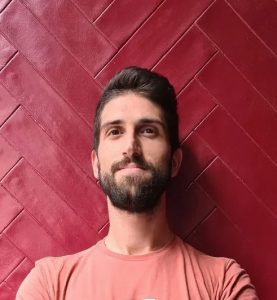
Alen Salkanović
Holds a Bachelor's and a Master's degree in Computer Science from the UNIRI-RITEH. He is currently enrolled in a PhD program at the same institution and is employed as a teaching assistant at the Department of Computer Engineering.
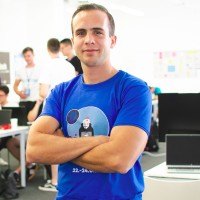
Arian Skoki
He eceived MS degree in Computer Engineering from the Faculty of Engineering, at the University of Rijeka in 2019. The Master's thesis title was "Automatic Music Transcription for Traditional Woodwind Instruments Sopele" which also resulted in publication. After finishing his studies, he moved to Graz, Austria, and worked as a Full Stack Developer. In 2020 an opportunity came to combine work with his other passion - Sports. Therefore, he returned to Rijeka to work as a Teaching assistant at the Faculty of Engineering and pursue a Ph.D. in Computer Science. His research involves data analysis and machine learning mainly in the field of football/soccer. He is also teaching courses for Undergraduate studies: Embedded Systems and Operating Systems. Apart from teaching roles, he is a leader of the Riteh Web Team (RWT) whose goal is to help students gain knowledge and experience to ease the transfer, and bridge the gap between faculty and industry. He was involved in mentoring students at the Lumen Development competition (2022) and Stem Games Technology arena (2022), the head of the organization for "Ri-Hack" hackathon (2022), and a member of the organization board for Summer School on Image Processing SSIP 2021 (Rijeka, Croatia) and SusTrainable Summer School 2022 (Rijeka, Croatia). In 2022 he got a scholarship from SoBigData++ Consortium for visiting the University of Pisa for six weeks for purpose of exchanging ideas and collaborating with fellow researchers.
